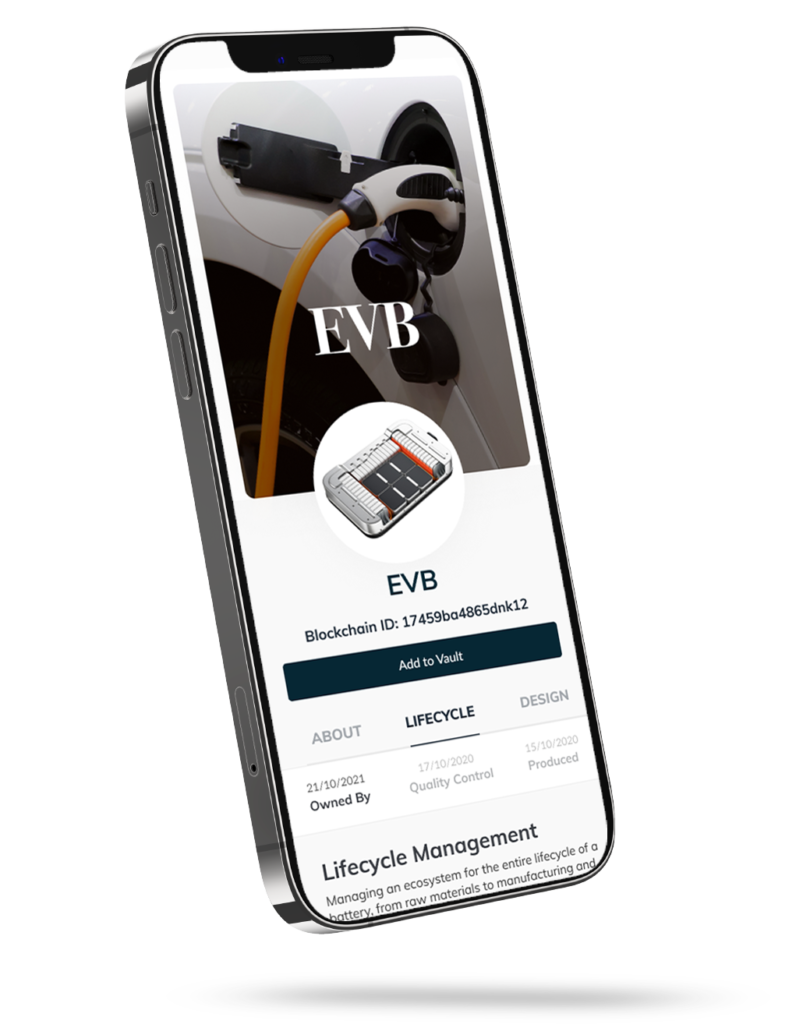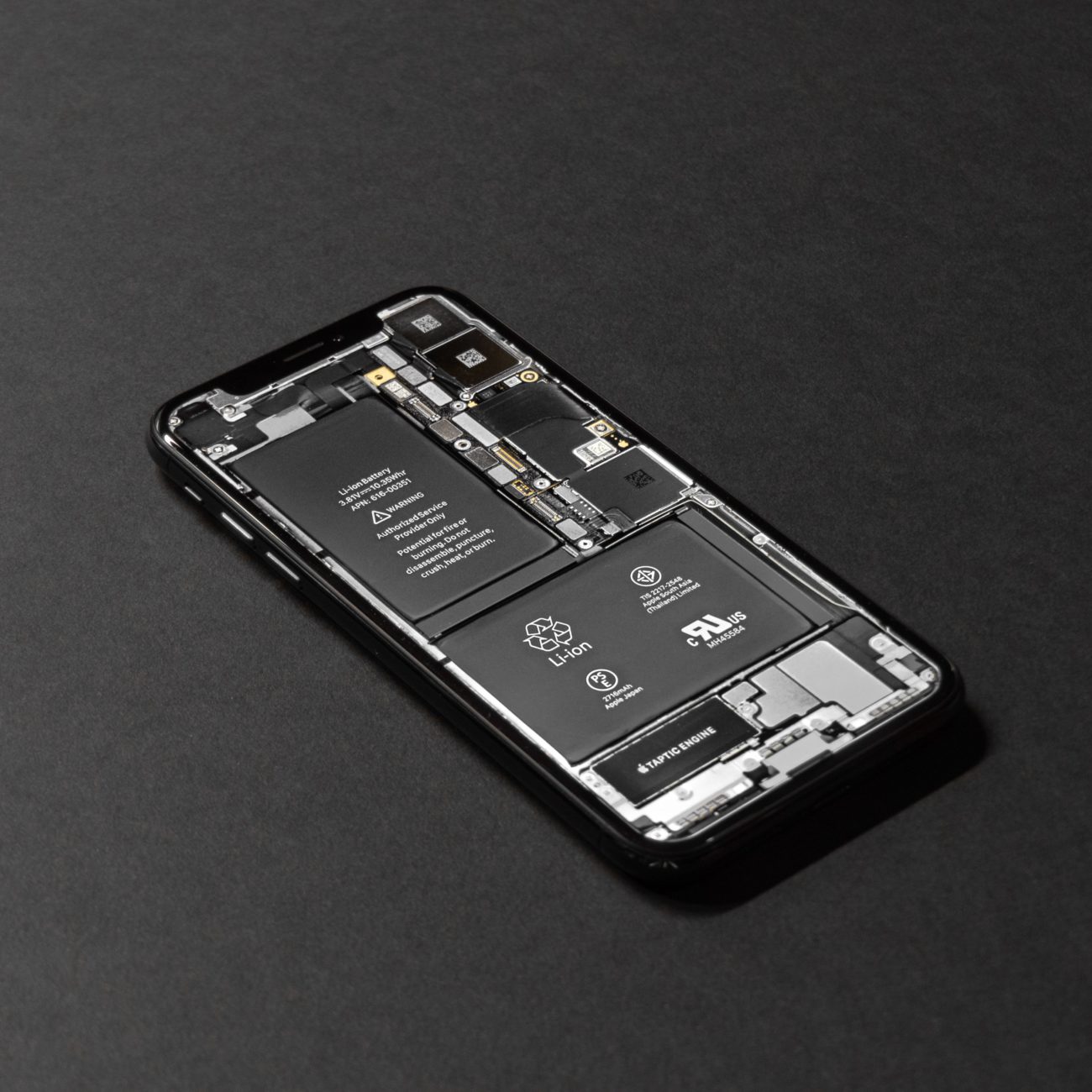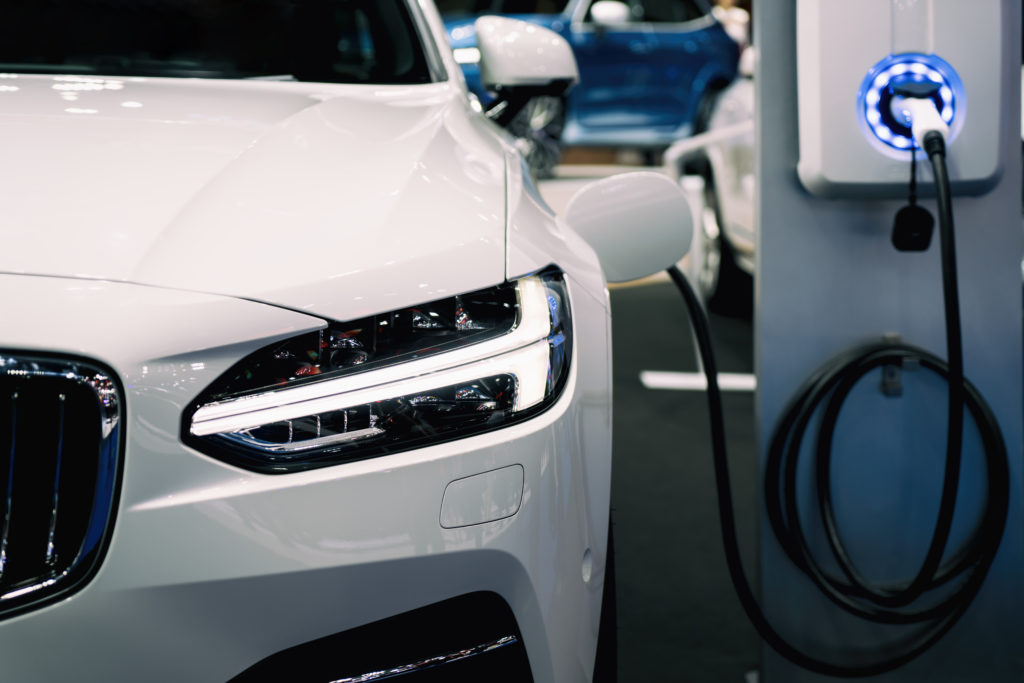Batteries
A blockchain platform for transparency and traceability

For Repurposing and Recycling
Increasing customer demand and regulatory requirements for responsibly sourced battery minerals is an opportunity for electronic vehicle battery manufacturers and supply chain participants to optimize sustainability performance and claims.
Applications
IoT Enablement
Improve processing efficiency with mobile device interaction. By including near field communication (NFC) tags in each battery, all of the critical environment, health, and safety information can be retrieved with the tap of a smartphone.
Digital Identities
Create batteries as immutable digital assets that can be tracked over time. A repurposer can use the Everledger platform to easily disaggregate arrays from one battery for use in another without losing its origination data.
For Manufacturers
Producer responsibilities in the use of electric vehicle batteries are as considerable as they are challenging to validate. Today, the Everledger platform enables both vehicle and battery manufacturers to track repurposing activity downstream. With batteries as unique digital assets and ownership history recorded on the blockchain, a longer-term supply of minerals for these products is more easily secured.
Applications
Extend the supply of battery minerals with the Everledger platform. OEMs can onboard approved battery recyclers and track and battery’s journey to final recovery. In the analytics dashboard, those batteries that have been repurposed and recycled can be reviewed at a glance.


Use case: Closing the loop on portable lithium ion batteries
In coordination with a grant from the United State Department of Energy, Everledger is tracking products with lithium ion batteries by registering them with immutable records on the blockchain for greater security, privacy and traceability. By validating the collection and responsible recycling of these batteries, the supply of critical metals and minerals is ensured for years to come.
"We believe the lessons learned in the development of this passport can be used to establish an industry-wide programme supporting an electric and sustainable future.”
DEAN SHEED
— AUDI NEW ZEALAND GENERAL MANAGER
The EV Battery Passport
Since 2017, Everledger has committed to supporting the Global Battery Alliance, with a view to raising ever more awareness around the challenges and opportunities of a sustainable battery value chain.
A Battery Passport is a digital identity that connects the battery and its critical parts to the internet, so it can be managed on a blockchain platform. The platform supports the exchange of data among authorised life cycle stakeholders to support a sustainable value chain for electric vehicle and portable electronics batteries.


The ‘Battery Passport’ and the future of the auto industry
The growing momentum in the electric vehicle industry is pushing battery repurposing, recycling, and disposal up the agenda. The onus on battery life cycle management globally is placed on vehicle manufacturers, over the actual battery manufacturers. This obligation to sustainably manage battery materials is also a financial and reputational opportunity, given the vast second-life potential for electric vehicle batteries (EVBs) and the fast-emerging circular economy.
“Our purpose is to contribute to greater transparency, trust, sustainability as well as amazing customer experiences in marketplaces where provenance matters most.”
Leanne Kemp
— Everledger Founder & CEO
Batteries Life Cycle Management
As government regulation and consumer demand become ever stricter, our blockchain platform solution facilitates traceability, enabling easier compliance for electric vehicle and consumer electronics companies. We are ISO27001-certified, evidencing the highest level of trust on information security and data protection.
Last year, Everledger was awarded Phase 1 funding by the United States Department of Energy for two pilot programs to trace the life cycle of lithium-ion batteries using blockchain and Internet of Things technologies.
The first battery recycling project is a collaboration with Ford Motor Company, connecting stakeholders in its electric vehicle battery life cycle to ensure optimal management and responsible recovery at end-of-life.
The second pilot focuses on a platform to inform and reward consumers for recycling portable lithium-ion batteries and the products they power.


